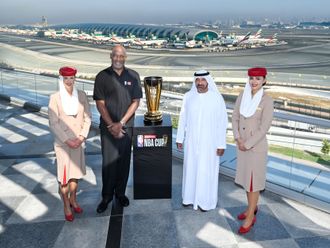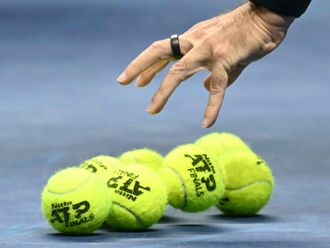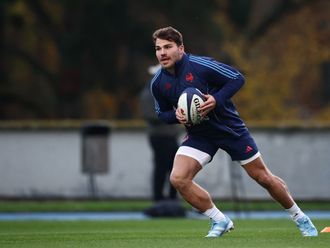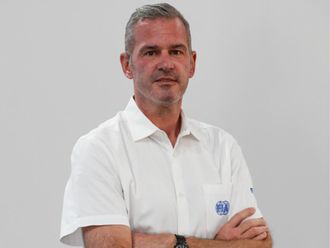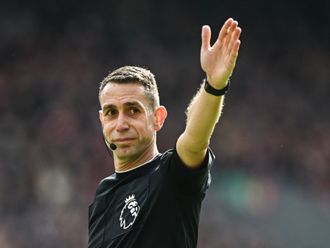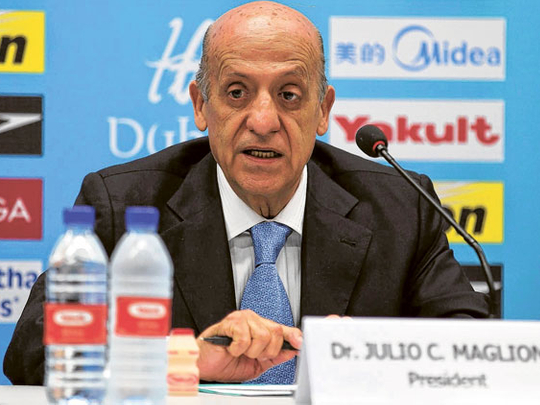
Dubai: As the President of the Federation Internationale de Natation (Fina), the international governing body for swimming and allied water disciplines, Dr Julio Cesar Maglione has been at the helm of growth and change of the sport in recent times.
As a former swimmer and national swimming champion in his native Uruguay, Maglione — an Odontologist by profession — the 75-year-old Fina chief has ushered in a new era of presenting swimming to world based on the mantra of democracy, transparency and good governance.
At last month's first Fina World Aquatics Convention held in Punta del Este with the attendance of 450 delegates, it was decided to allow federations to submit proposals for constitutional change in the functioning of Fina.
The members will next vote of these changes at an Extraordinary Congress scheduled in Shanghai, China in July next year. In addition, Maglione is keen to present the Fina of the 21st century and along with it provide a development plan to members of the world body that is more than a century in existence as he explains:
GULF NEWS: Dr Maglione, you have been here in the past. But what was your first impression when you arrived in Dubai this time?
Dr Julio Cesar Maglione: I have been very impressed with what Dubai has put up here. This is an outstanding and extraordinary venue. This venue will be for the future, not just for the UAE, but for the development of swimming in the entire Middle East region. Honestly, this can be the start for swimming and its development in this part of the world.
You have all the conditions and marvellous criteria for the growth of the sport now — conditions for the judges, spectators, media and most importantly the swimmers. Everyone is very happy with what Dubai has achieved with this, but now it is time to start building on this success step by step.
Since you mention development of swimming in this part of the world, do you at Fina have anything concrete already laid out for this region?
Our plans will be in consonance to what the UAE and the surrounding countries want. The initiative has to come from the respective associations and we are only too willing to assist and work hand in hand and support anything for the growth of not just swimming, but also diving, synchronised swimming, open water swimming and water polo. The onus is on the respective associations.
Does Fina have a blueprint or a concrete plan for the improvement of sport here in the UAE or in the Gulf?
We are here to conduct competitions and this is one sure way of bringing sport to a particular part of the world.
In Asia, you have the Olympic Council of Asia (OCA) with its 44 member nations. This is an area that is developing very fast, and it is very important to ensure that we are there to support this surge. Really, we are ready to support in principle.
We think the next World Championships in 2013 should have been here in Dubai. But in one moment, Dubai called in to say no to this championships.
But if they want to organise some other world championships like diving or swimming or even re-submit a fresh bid for 2015 then we will consider their candidature as they have proved their capability with this championships. At Fina, we do not receive any sort of fee from the hosts. We only ensure that there is a good facility, good transportation, hotels and all the best conditions for the athletes. All the money is for the service of the federations.
How would you quantify the growth of this sport in recent times?
In Beijing we had 175 national federations taking part and swimming has been growing surely since the past few years. You can witness this growth at this competition itself. We had 117 nations in 2008 in Manchester and now we have 153 countries in Dubai.
This makes a huge impact on the value of events we are organising. In Beijing, for instance, the contribution of Fina towards the IOC was substantial in order to achieve television coverage.
And now we have gone a step further with the high-definition (HD) television as the picture quality is so clear and the excitement can be right in your room.
Doping control has been an issue related with your sport. When will blood testing become an integral part of doping control in swimming?
In the past, we have tried to do doping control through blood testing, but the logistics involved are too much.
But for Shanghai 2011, everything will be in place including blood tests for athletes. There may also be additional tests carried out and these will be made known in due course of time after the doping control board completes their meetings here.
Since this incident happened in Fujairah [October 23, 2010], what are the findings of the task force looking into the tragedy surrounding the death of American swimmer Francis Crippen?
The task force has begun its work already, but there are a lot of elements missing there.
From what I know — and I am not a member of the task force as it is a completely independent body — the task force is already working led by chairman Gunner Werner, one of the Vice-Presidents with CAS (Court of Arbitration in Sports).
We don't want to take anything away from this committee, but allow them to continue with their task. But be sure that when their work is done we will immediately inform everybody concerned as this is something we take very seriously.


